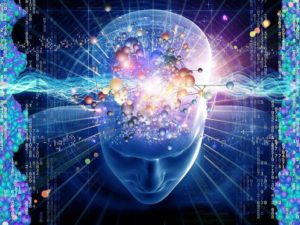The Ultimate Promise of the “Enlightenment”: Transhumanism
 Nearly all religious traditions have held that life after death is something which awaits us–whether it be by reincarnation, eternal punishment or pleasure/union with goodness, or simply various other imaginative ideas created by the Romans (like pushing a rock up a hill for eternity). However, in the Abrahamic traditions (common to Jews, Christians and Muslims), when man ate of the tree of knowledge of good and evil, he brought upon himself death by disobeying the will of God and falling from his favor.
Nearly all religious traditions have held that life after death is something which awaits us–whether it be by reincarnation, eternal punishment or pleasure/union with goodness, or simply various other imaginative ideas created by the Romans (like pushing a rock up a hill for eternity). However, in the Abrahamic traditions (common to Jews, Christians and Muslims), when man ate of the tree of knowledge of good and evil, he brought upon himself death by disobeying the will of God and falling from his favor.
As many of you know (if not already then because you follow this blog), with the onset of the “enlightenment”, materialism, physicalism and positivism grew rapidly. The idea was that what we know is real with certainty is the empirical since this is what we most immediately experience and because we cannot quantify and immediately experience the metaphysical, then we cannot justify believing in it. It might as well be considered a figment of our imagination that “justice” actually exists. So, we are left with the mechanical. That is why I left the gears in Descartes arms in the photo. This feels like a gross oversimplification and that I am not doing ‘justice’ to the works of the many brilliant modern thinkers, nevertheless this is not going to be the main point of the article, so I must summarize it. The idea of a lack of a good is just in my head anyways.
The point is that, hot on the heels of the enlightenment from which a movement towards solely concerning ourselves with the material aspects of the world (since that’s all we can truly know) came, not surprisingly due to the application of this thinking, the technological and industrial revolutions exploded. Here the empirical sciences showed off their guns, quite often literally.
But the revolution ironically was not limited to technological or scientific, it was also philosophical. A new view of the world was taken resulting from the wonder and awe at what mankind had begun to produce. Now instead of taking
months to cover the North American continent on horseback it could be accomplished in less than a week by train. Today we continue to have this wonder, which seemed to previously be given to God alone at the sight of lightening or similar events, now the same feeling could be stirred up by entering a city. Who has not experienced this wonder at what mankind has accomplished when entering the city of New York. The complexities and testaments to new heights are endless. At this point, since God doesn’t exist and we continue to experience feelings we previously attributed to someone who we could never see, is it possible that humanism would not develop? Auguste Comte, as I have mentioned many times, for me is the archetypal character in this movement. He was so fascinated with empirical science and the technological revolution that he founded the “Religion of Humanity” and named himself the high priest of positivism. Because he knew unscientific men would cling to their religion, he made a religion. He wrote a catechism and seven sacraments and required that only scientists could be priests.
I don’t mean to make a history lesson here, but in the end, transhumanism is not a new idea. The idea that eternal life could be accomplished without a God, I’m sure, was one of the first thoughts of these thinkers–and it would be accomplished via technology. Another 19th-century Russian philosopher, Nikolai Fyodorov, advocated radical life extension, physical immortality and even resurrection of the dead using the newly developed scientific methods. (Berdayev, Nikolai (1915). The Religion of Resuscitative Resurrection. “The Philosophy of the Common Task of N. F. Fedorov. Why not? There have been many since then. I don’t mean to sound like a conspiracy theororist by mentioning the masons, but the next time you stop by your local friendly masonic temple, take a look at its corner-stone. It will have the date it was founded in AD and it will have the date it was founded AL. AL stands for Anno Lucis, the year of light. I have had mixed responses when asking masons what it means. Perhaps they aren’t all told the same thing or they would prefer not to say. Some have told me it refers to creation “Let there be light” others say it refers to the moment when mankind fell from the state of grace in taking the fruit from the tree of knowledge of good and evil, the time when the human race began (as it is). The second would be significant in that it marks the time that we tried to “become like gods.”
 In the end, the purpose of this post was only to be informative and not to make judgement on whether transhumanism is a good thing or a bad thing….that could come in a later post. Obviously technology is useful, however useful is not the same thing as the good. According to the angelic doctor we must first pursue the good in itself (strict positivists believe this is illusory), second the bonum delectabile (pleasure) because it points us towards goods, and lastly the bonum utile (utility). Utility is last priority because it is merely a means towards another thing, but it is still a motivating type of good. Nevertheless, we should ask, if we could make ourselves immortal, should we? It might get boring.
In the end, the purpose of this post was only to be informative and not to make judgement on whether transhumanism is a good thing or a bad thing….that could come in a later post. Obviously technology is useful, however useful is not the same thing as the good. According to the angelic doctor we must first pursue the good in itself (strict positivists believe this is illusory), second the bonum delectabile (pleasure) because it points us towards goods, and lastly the bonum utile (utility). Utility is last priority because it is merely a means towards another thing, but it is still a motivating type of good. Nevertheless, we should ask, if we could make ourselves immortal, should we? It might get boring.





